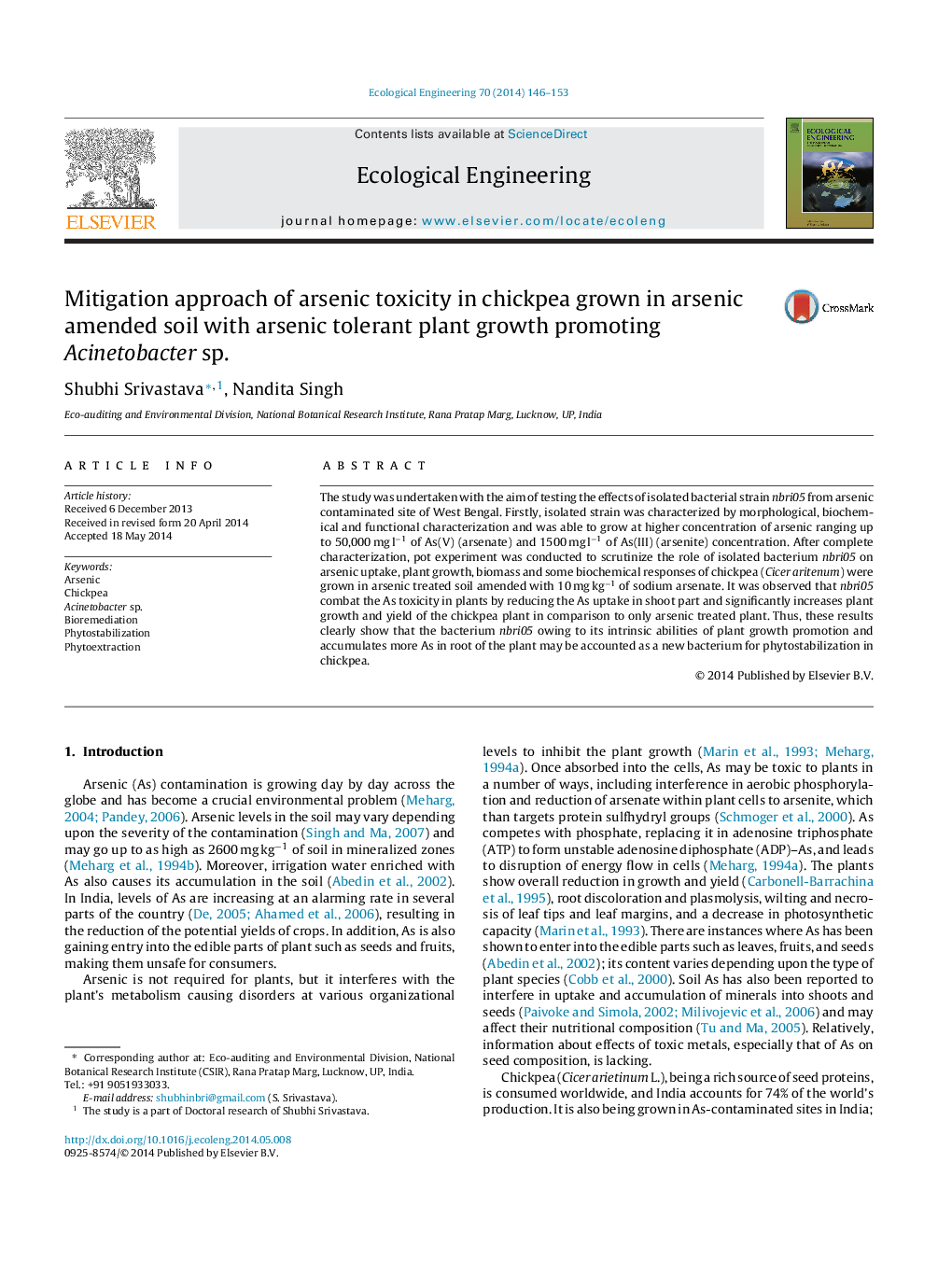| Article ID | Journal | Published Year | Pages | File Type |
|---|---|---|---|---|
| 6302125 | Ecological Engineering | 2014 | 8 Pages |
Abstract
The study was undertaken with the aim of testing the effects of isolated bacterial strain nbri05 from arsenic contaminated site of West Bengal. Firstly, isolated strain was characterized by morphological, biochemical and functional characterization and was able to grow at higher concentration of arsenic ranging up to 50,000 mg lâ1 of As(V) (arsenate) and 1500 mg lâ1 of As(III) (arsenite) concentration. After complete characterization, pot experiment was conducted to scrutinize the role of isolated bacterium nbri05 on arsenic uptake, plant growth, biomass and some biochemical responses of chickpea (Cicer aritenum) were grown in arsenic treated soil amended with 10 mg kgâ1 of sodium arsenate. It was observed that nbri05 combat the As toxicity in plants by reducing the As uptake in shoot part and significantly increases plant growth and yield of the chickpea plant in comparison to only arsenic treated plant. Thus, these results clearly show that the bacterium nbri05 owing to its intrinsic abilities of plant growth promotion and accumulates more As in root of the plant may be accounted as a new bacterium for phytostabilization in chickpea.
Related Topics
Life Sciences
Agricultural and Biological Sciences
Ecology, Evolution, Behavior and Systematics
Authors
Shubhi Srivastava, Nandita Singh,
